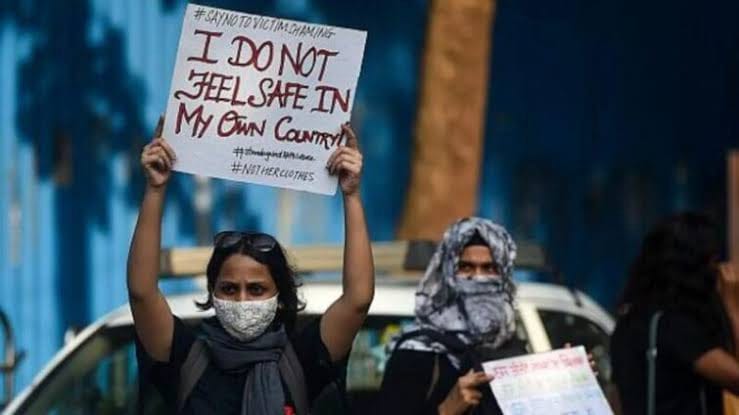India outraged over alleged sexual assault on woman inside police station
The allegations of a brutal sexual and physical assault on a 32-year-old woman inside a police station in Odisha have sparked widespread outrage across India, raising serious concerns over police brutality and the treatment of women in custody.

The allegations of a brutal sexual and physical assault on a 32-year-old woman inside a police station in Odisha have sparked widespread outrage across India, raising serious concerns over police brutality and the treatment of women in custody.
The case, involving a law graduate and restaurant owner, who claims she was assaulted by a group of police officers, has captured national attention after her harrowing video testimony went viral on social media.

The victim, whose fiancé is a serving army officer, alleged that she was attacked after seeking police help following harassment by a group of men. “The police refused to take down our complaint, instead they abused us. When I told them that I was a law graduate and knew my rights, they got even more angry,” she said.
What unfolded next has shocked the country. According to the woman’s account, her fiancé was locked up, and when she protested, two female officers allegedly began beating her, dragging her by the hair, and attempting to strangle her. The abuse reportedly escalated when a male officer entered the scene, physically assaulting her and threatening to rape her if she didn’t stop screaming. The images of the woman—visibly injured, sitting in a wheelchair with her arm in a sling—have fueled public outrage.
Also Read: Court reveals suspect accused of Trump assassination plot
Initial reports from the police accused the couple of being drunk and claimed the woman was aggressive, even slapping and biting officers. However, just days after the alleged incident, the Odisha High Court granted her bail and sharply criticized both the police and the lower court for their handling of the case. Justice Aditya Kumar Mohapatra, in a strong rebuke, said, “On careful examination of the record, it appears that the allegations are very serious in nature… They are anathema to the very concept of a democratic and orderly society.”
Four police officers, including three women, have since been suspended, and a fifth was transferred. The state’s crime branch has opened an investigation, while a retired high court judge, Justice Chitta Ranjan Dash, has been appointed to lead an independent inquiry into the case, with a report expected within 60 days.
The case has gained particular attention due to the woman’s connections to the Indian army. Her father, a retired brigadier, expressed his distress over not being informed about his daughter’s arrest. “Some army officers informed me that my daughter had been arrested and sent to jail. I was allowed to meet her only the next afternoon,” he told the BBC. The army has also expressed concern, writing to the Odisha High Court to condemn the treatment of the woman and her fiancé, stating, “The modesty and dignity of his fiancée, who also happens to be the daughter of a retired brigadier, was grossly outraged by the police authorities.”
The case has ignited a fierce debate in India about police accountability and the treatment of women, with many taking to social media to express their anger. However, victim-blaming has also emerged, with some questioning the woman’s character based on her clothing and the fact that she consumed alcohol. This has drawn strong condemnation from women’s rights activists. Namrata Chadha, a lawyer and advocate who met with the woman in the hospital, said, “It is heart-breaking to see this kind of victim shaming… She has an injured shoulder, a cut on her face, and swelling around her eye. She is very traumatized.”
Chadha also questioned the police’s failure to follow basic protocols, such as offering the woman support when she first arrived at the station. “They have to offer her a glass of water, calm her down. But from what she has alleged, it appears that basic rules were not followed. Also, how come there were no CCTVs when the Indian Supreme Court mandates it for every police station?”
This case has resonated with many across India, not only because of the woman’s privileged background but also due to the fear it instills in women everywhere. As Chadha pointedly asks, “We tell our daughters that if you are in trouble, go to the nearest police station. We tell them it’s the second safest place – after their home. What do we tell them now? Where will a woman go now?”
As investigations continue, the nation waits to see whether justice will be served and whether this case will lead to lasting reforms in how police treat women in custody.














